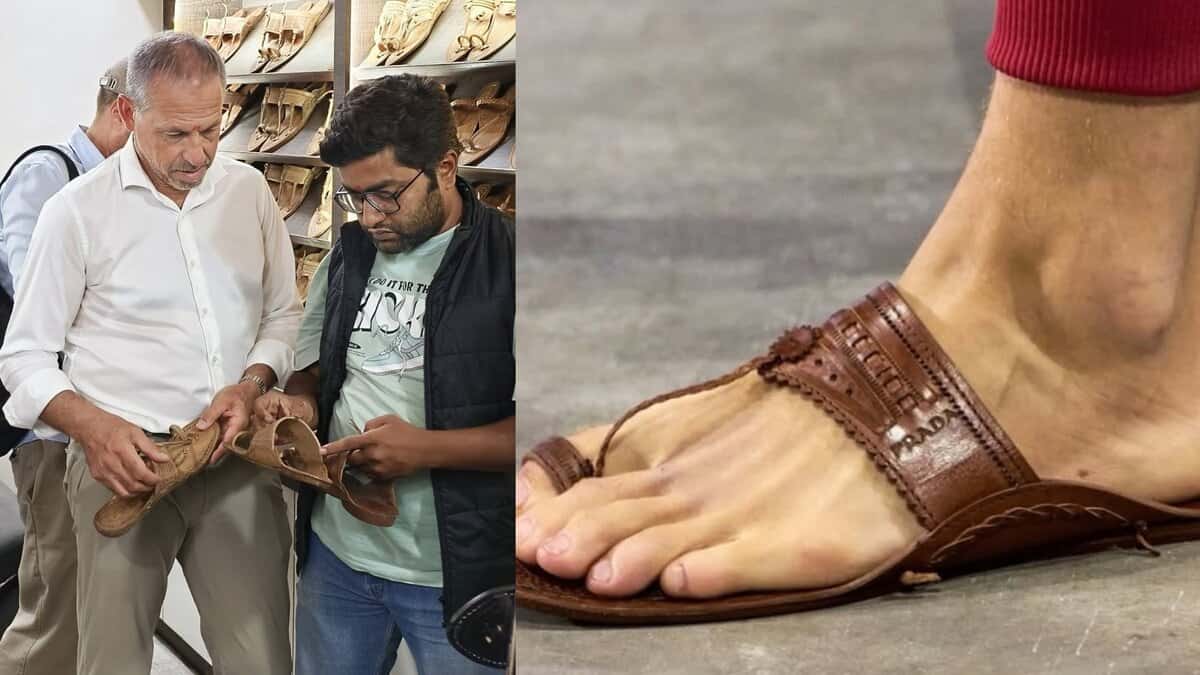
Italian luxury fashion brand Prada has taken a big step after receiving criticism for copying India’s traditional Kolhapuri chappals. A team from Prada visited Kolhapur, Maharashtra today to meet the local artisans who handcraft these famous leather slippers.
The issue started when Prada displayed sandals that looked very similar to Kolhapuri chappals at the Milan Fashion Week Spring/Summer 2026 show on June 22, 2025. The sandals were priced at around Rs.1 lakh and called just “Toe ring sandals.” But they did not mention that the design was inspired by Kolhapuri chappals, which are traditionally sold in India for Rs.300 – Rs.1,500.
This caused strong reactions online and in the media. Many people accused Prada of cultural appropriation using Indian tradition without giving credit.
To respond, Prada sent a team of four experts to Kolhapur. The team included:
- Paolo Tiveron, Director of Men’s Footwear Production
- Daniele Contu, Pattern-Making Manager
- Andrea Pollastrelli and Roberto Pollastrelli, footwear consultants
They visited the Subhash Nagar area of Kolhapur, where many skilled artisans make Kolhapuri chappals by hand. The visit was arranged by the Maharashtra Chamber of Commerce, Industry and Agriculture (MACCIA).
Lalit Gandhi, president of MACCIA, said, “This is the first time that representatives of a company with a turnover of Rs.50,000 crore have come to Subhash Nagar.”
He added, “This controversy helped take the Kolhapuri chappal to the global stage. Another team from Prada will come in August to discuss business collaboration.”
Prada also released a statement saying that the design was inspired by Kolhapuri chappals. The company said it is open to “a dialogue for meaningful exchange with Indian artisans.”
The Kolhapuri chappal has been given a Geographical Indication (GI) tag, which means it is a special product made only in that region. These chappals are made from vegetable-tanned buffalo leather, using traditional handcraft methods passed down through generations.
Now, there are talks about a possible “Made in India” Kolhapuri line by Prada. If this partnership happens, it could bring global attention and better income to local artisans. This move is being seen as a step towards ethical fashion where inspiration is not just taken, but credited and shared with the real creators.
Many hope this will set a good example for how big fashion brands can work respectfully with traditional craftsmen.


